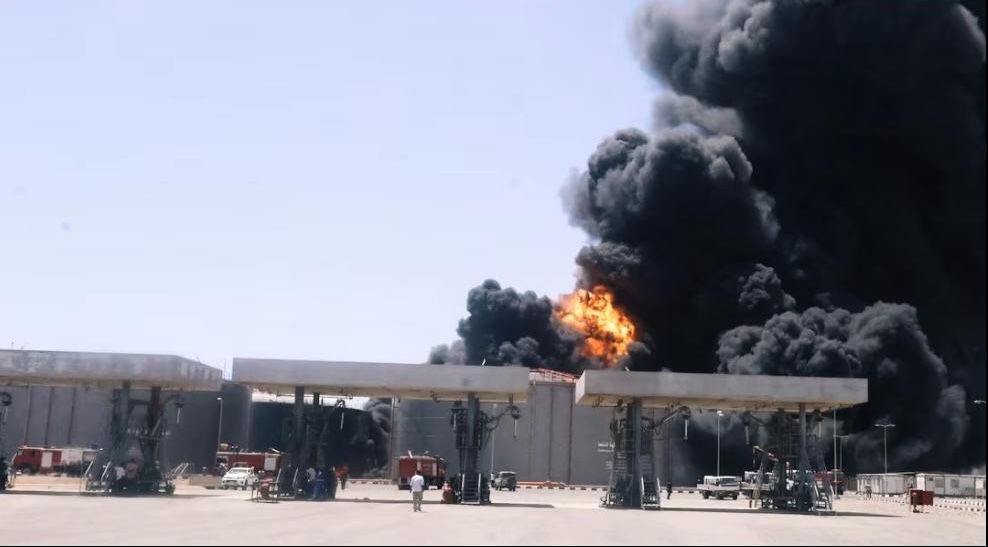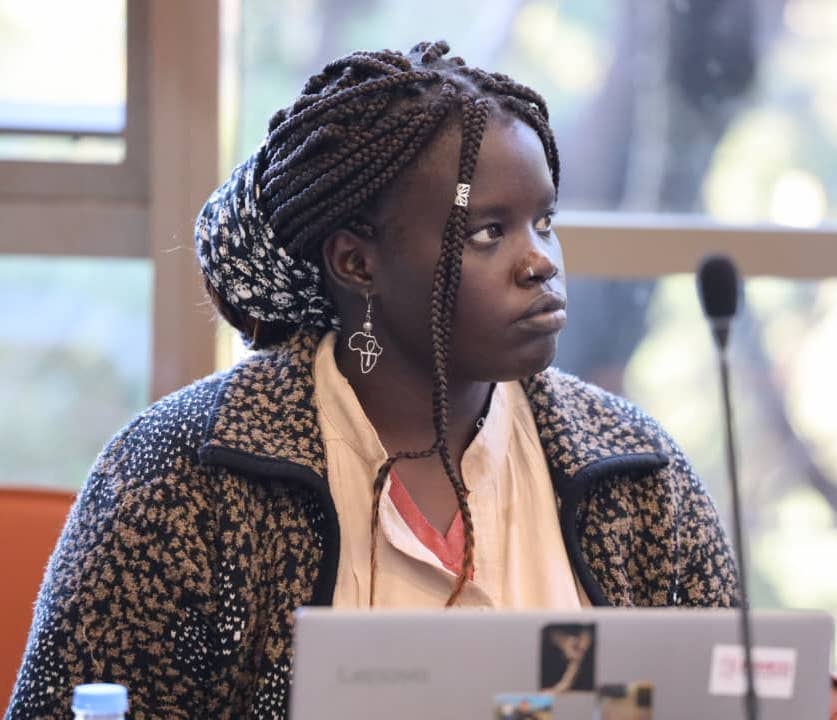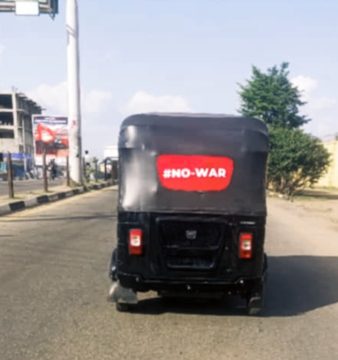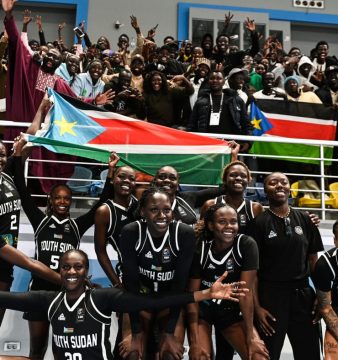[The Picture] Mess and Ruins: Port Sudan Attack Two Years Into Sudan’s War
Smoke, fire, and panic. The picture shows the destruction of one of the fuel sites in Port Sudan, leaving people terrified, as many continue to hope for an end to Sudan’s ongoing war instead of further escalation.
15 April 2025 marked two years since the war began in Sudan. When it started, no one imagined it would last this long. The conflict escalated from one region to another — first Khartoum, then Darfur, followed by Al Gezira, and Kordofan. Between 4 and 7 May 2025, Port Sudan was hit by at least six drone and missile strikes targeting military bases (Osman Digna Air Base, Flamingo Naval Base), fuel depots, the international airport, the power station, and civilian infrastructure. The Sudanese Armed Forces (SAF) accused the paramilitary Rapid Support Forces (RSF) of carrying out the attacks, reportedly using suicide and loitering drones launched from distant positions, possibly over the Red Sea. However, the RSF has not officially claimed responsibility.
As the war grows more intense, people living in previously safer areas such as Port Sudan are now questioning their own safety. The city holds a highly sensitive position; it hosts the country’s only functioning international airport and is open to the Red Sea, adding further geopolitical complexity to the situation.
The capital city of Red Sea State, Port Sudan is not just the administrative capital; it has become a refuge for thousands of Sudanese and foreigners fleeing the war from other parts of the country. The de facto city is now home to nearly 500,000, in addition, the Red Sea State is home to 1.4 million. It is also the main entry point for humanitarian aid into Sudan. The recent bombings severely disrupted aid deliveries, threatening millions already facing famine and displacement. People in cities such as Al Fasher, the capital city of North Darfur, and Kordofan (North, South and West) are in urgent need of humanitarian intervention. Meanwhile, areas such as Khartoum are struggling with food and medical shortages, with the cholera outbreak worsening, especially in Omdurman. If the war fully reaches Port Sudan, the consequences could be catastrophic.
Damaging civilian infrastructure, airports, and fuel stations does not count as a military victory but it only adds to the suffering of ordinary people, cutting off essential services and basic needs. Since the strikes on Port Sudan, reports indicate severe power outages and a critical lack of cooking gas and fuel.
There is an urgent need for both local and international solidarity and advocacy to end the war in Sudan. Many have already lost their lives to missiles and bullets; many more are dying slowly due to the lack of clean water, healthcare, and a safe environment. As the war nears its third year, swift and meaningful intervention is essential to protect people’s lives and preserve their dignity.
500WM Columnist Dominica Amet Joseph Marco is a 26-year-old South Sudanese writer, freelance journalist and feminist/social activist who graduated from the faculty of law from the University of Bahri in 2018. She is one of many who had to flee war in Sudan to finally come and live in her homeland South Sudan. She has written and published articles, stories and poems since 2017. She has worked with and published articles in Aka’bar Alwatan Newspaper in Sudan, Almugif Newspaper in South Sudan, and several other Arabic websites.






